Business
Moody’s cuts Maldives credit rating over ‘collapse in tourism receipts’

Rating agency Moody’s downgraded Maldives credit rating to B3 from B2 on Friday, citing a collapse in the island nation’s tourism receipts due to the global coronavirus pandemic.
Moody’s said it downgraded the Maldives credit rating — used by investors to assess the risk associated with a debt issuer — because the ongoing shock to the tourism sector will significantly impair economic activity and raise government liquidity risks, exacerbating weak fiscal and external positions.
“For Maldives, the shock transmits mainly through a collapse in the country’s tourism receipts, which are a vital source of government revenue and foreign exchange earnings,” a statement read.
“With existing fiscal weaknesses and a fragile external position with low reserves coverage of external debt and import payments, the shock will exacerbate government liquidity risks. Heightened liquidity risks will in turn intensify external pressures.”
Moody’s said it maintained the negative outlook because a potentially sharper and longer contraction in economic activity will exert greater pressure on government and external finances than anticipated.
“The negative outlook also relates to limited fiscal space and financing options in the context of a rising debt burden and sizeable financing requirements that may contribute to higher government liquidity pressures in the coming years, and especially ahead of a large bond maturity in 2022, even amid an eventual normalisation in economic activity,” the statement read.
The New York-based global credit rating agency also lowered Maldives long-term local-currency bond and deposit ceilings to Ba3 from Ba1, and the foreign currency bond ceiling to B1 from Ba3. The foreign currency deposit ceiling was also lowered to Caa1 from B3.
Moody’s downgrade follows a similar move by Fitch, the only other agency that rates Maldives, in March.
Fitch cut the Maldives credit rating to B from B+ and revised the outlook to negative from stable, citing the unprecedented shocks to the tourism industry.
The coronavirus outbreak has hit the Maldivian economy hard, as travel restrictions and other preventive measures affect the country’s lucrative tourism industry, which contributes the bulk of the island nation’s state revenue and foreign reserves.
Before the pandemic, the government had been bullish about tourism prospects, targeting two million, high-spending holidaymakers this year after last year’s record 1.7 million.
However, tourist arrivals saw a year-over-year decline of 22.8 per cent in the first 10 days of March. Officials say the number of tourist arrivals to the Maldives could drop by half in 2020.
All international airlines have suspended scheduled operations to the Maldives, as the island nation enforced a blanket suspension of on-arrival visa in late March in a bid to combat the spread of the novel coronavirus.
Even before the visa suspension, the Maldives had closed its borders to arrivals from some of the worst-hit countries, including mainland China, Italy, Bangladesh, Iran, Spain, the United Kingdom, Malaysia and Sri Lanka. Visitors from three regions of Germany (Bavaria, North Rhine-Westphalia and Baden-Württemberg), two regions of France (Île-de-France and Grand Est) and two regions of South Korea were also banned from entering the country.
All direct flights to and from China, Italy, South Korea and Iran were also cancelled.
Cruise ships and foreign yachts were also banned from docking at any of the country’s ports.
With arrival numbers falling and the visa suspension in effect, several resorts across the Maldives had been closed.
Tourism has been the bedrock of the Maldives’ economic success. The $5 billion-dollar economy grew by 6.7 per cent in 2018 with tourism generating 60 per cent of foreign income.
However, the government is at present projecting a possible 13 per cent economic contraction this year — an estimated $778 million hit.
The government had announced plans to shave MVR 5 billion ($324 million) off state expenditure and reduce the total state expenditure for the year to MVR 30 billion ($1.944 billion) from the approved MVR 38.7 billion ($2.5 billion).
Austerity measures include a 20 per cent cut on salaries and allowances of all political appointees, 25-35 per cent cuts on salaries and allowances of public sector employees, and 30-70 per cent cuts across travel, training, renovations and capital equipment budgets.
The Maldives is also looking to borrow $233.37 million from international lenders to plug the gap in balance of payments stemming from the coronavirus pandemic.
Funds already pledged by international lenders include $28.9 million from the International Monetary Fund (IMF), $20 million from the OPEC Fund for International Development, $17.3 million from the World Bank, and $3.28 million from the European Union.
In the meantime, the government will borrow MVR 4.2 billion ($272 million) under an overdraft facility at the central bank to cover state expenses and maintain public services amidst the coronavirus pandemic.
On March 8, Maldives reported its first cases of the novel coronavirus, as two hotel employees tested positive for Covid-19 at a luxury resort in the archipelago.
Eighteen more cases — all foreigners working or staying resorts and liveaboard vessels except five Maldivians who had returned from abroad — were later identified.
A six-case cluster of locals, detected in capital Male on April 15, confirmed community transmission of the coronavirus. Several more clusters have since been identified, bringing the total number of confirmed case in the Maldives to 1,274.
Four deaths have been reported and 109 have made full recoveries. Five remain in intensive care.
The Maldives announced a state of public health emergency on March 12, the first such declaration under a recent public health protection law.
The public health emergency declaration has allowed the government to introduce a series of unprecedented restrictive and social distancing measures, including stay-at-home orders in capital Male and its suburbs, a ban on inter-island transport and public gatherings across the country, and a nationwide closing of government offices, schools, colleges and universities.
Non-essential services and public places in the capital such as gyms, cinemas and parks have also been shut.
Restaurants and cafes in the capital have been asked to stop dine-in service and switch to takeaway and delivery.
A nationwide shutdown of all guesthouses, city hotels and spa facilities located on inhabited islands is also in effect.
Photo: Maldives Monetary Authority (MMA), the central bank of Maldives. PHOTO/ CORPORATE MALDIVES
Business
Feydhoo Hall opens at dusitD2 Feydhoo Maldives as new event space
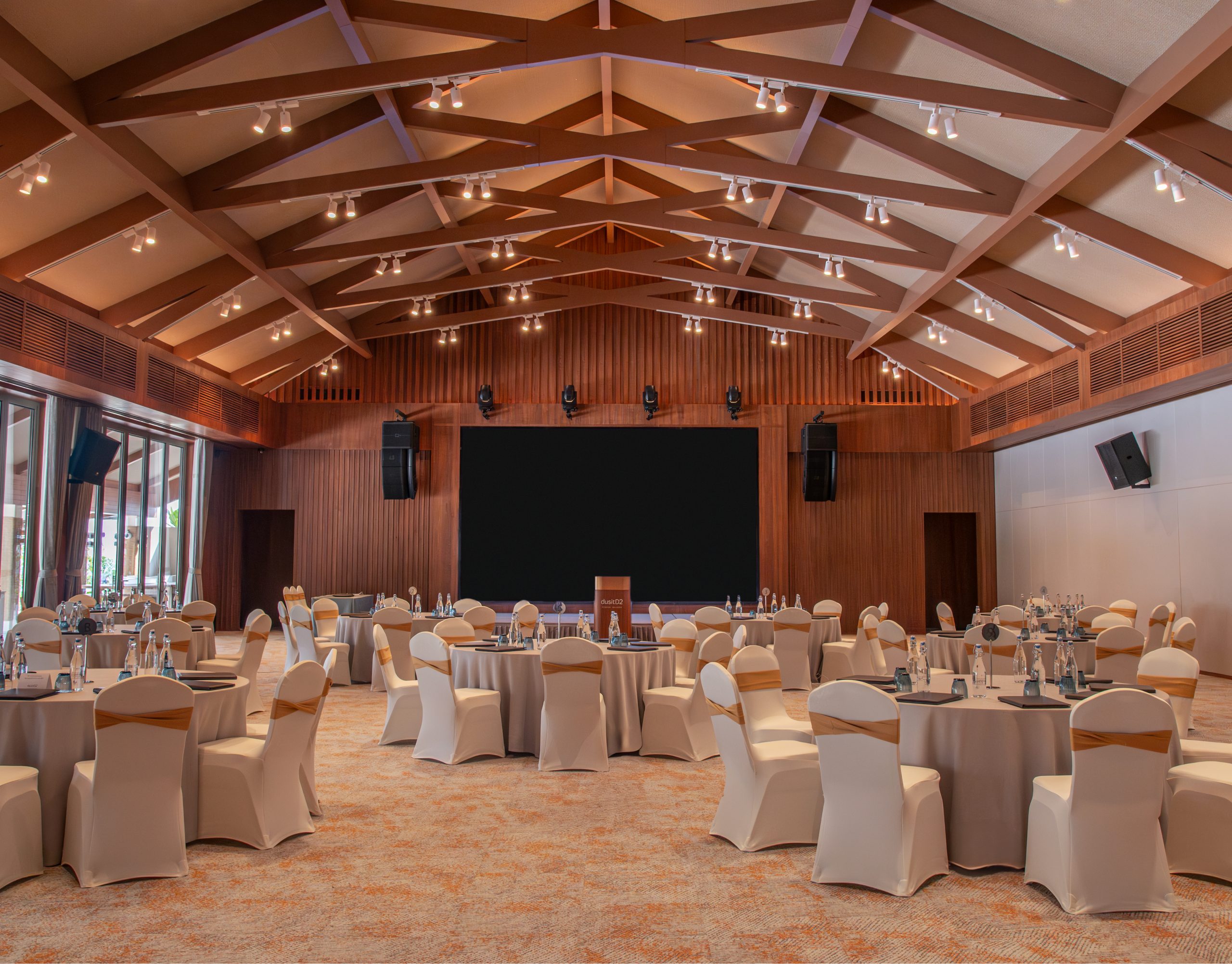
Dusit International, one of Thailand’s leading hotel and property development companies, has announced the opening of Feydhoo Hall, a landmark event venue at dusitD2 Feydhoo Maldives, redefining the possibilities for meetings, celebrations, and destination events in the Maldives.
Designed to bring scale, flexibility, and creativity to island gatherings, Feydhoo Hall represents a bold step forward in positioning the Maldives as a dynamic destination for conferences, weddings, and large-scale social occasions.
Feydhoo Hall offers a versatile event complex designed to accommodate a wide range of gatherings, from corporate meetings and conferences to weddings and social celebrations.
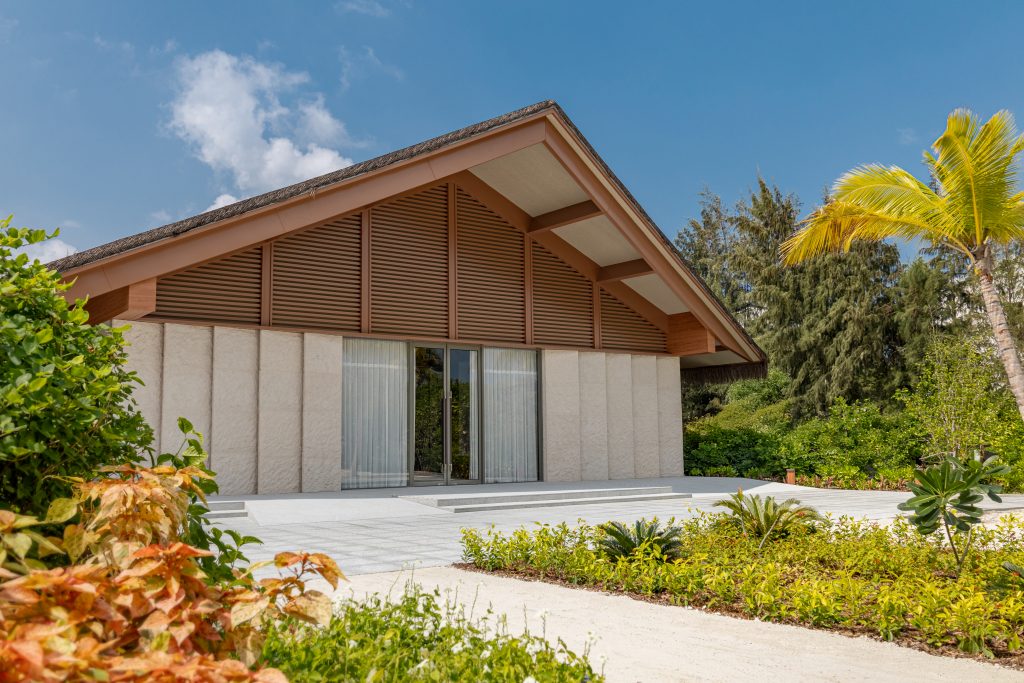
At its core is the 390 sqm Main Hall, capable of hosting:
- Up to 300 guests in theatre-style setup
- Up to 240 guests for dining and banquet-style events
- Up to 200 guests for cocktail-style receptions
- Up to 144 guests in cluster-round configuration
Enhancing the flexibility of the venue are additional dedicated spaces, including:
- A 110 sqm Veranda Terrace, ideal for welcome receptions, breakout sessions, and pre-event gatherings, accommodating up to 100 guests for cocktail-style events.
- A spacious 1,000 sqm Lawn Space, perfect for large-scale outdoor celebrations, destination weddings, and open-air events, accommodating up to 400 guests for cocktail receptions and up to 350 guests for dining setups.
- The 55 sqm Ekugai Meeting Room, designed for smaller meetings and executive sessions, accommodating up to 30 guests in theatre or dining setup and 24 guests in cluster-round format.
Together, these integrated spaces create a seamless indoor-outdoor event experience, allowing planners to design dynamic and personalised event journeys.
True to the dusitD2 brand’s lifestyle-driven philosophy, Feydhoo Hall introduces a fresh approach to meetings and events — where productivity meets creativity in an inspiring island setting.
The venue offers flexible meeting formats designed to suit different event needs, including:
- Half-Day Meeting Package (4 hours) — ideal for focused sessions, executive meetings, and creative workshops.
- Full-Day Meeting Package (8 hours) — designed for immersive conferences, extended workshops, and large-scale corporate gatherings.
These thoughtfully structured packages provide planners with the flexibility to create impactful and seamless experiences, whether hosting intimate strategy sessions or dynamic full-day events.
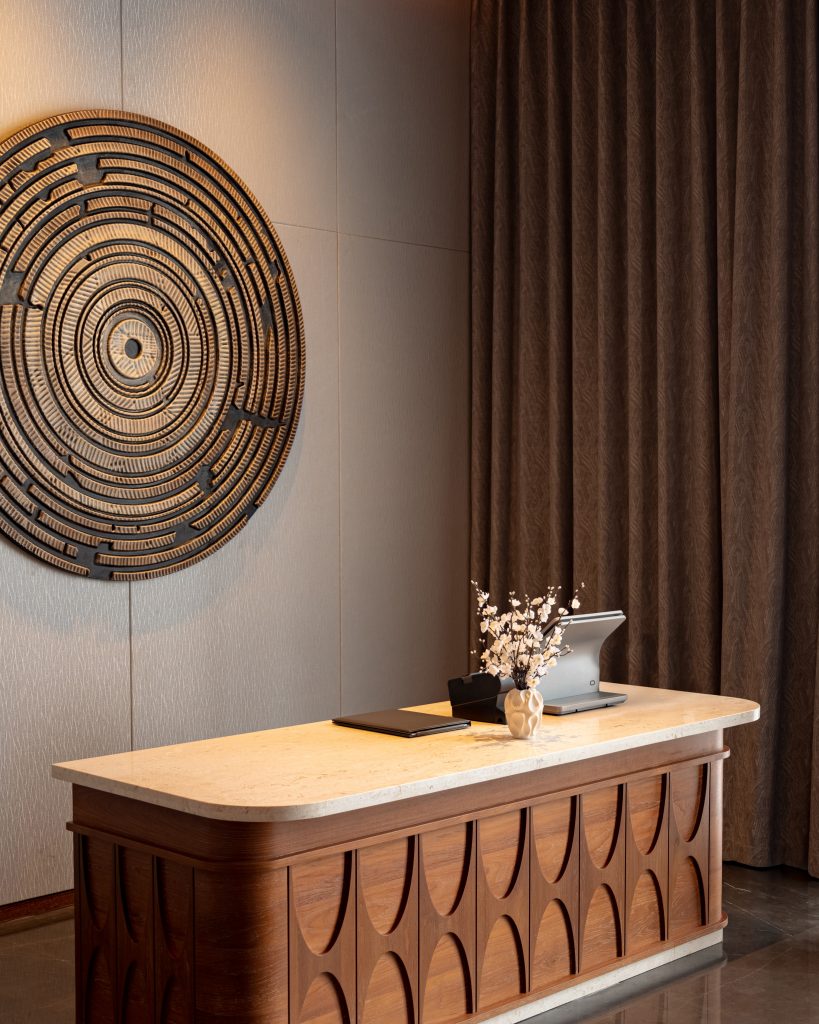
Located just seven minutes by speedboat from Velana International Airport, dusitD2 Feydhoo Maldives combines accessibility with vibrant lifestyle energy, offering event planners and guests a rare balance between convenience and tropical escape.
With the introduction of Feydhoo Hall, the resort strengthens its position as a versatile destination — not only for leisure travellers but also for international conferences, creative retreats, luxury weddings, and large-scale social celebrations seeking something refreshingly different in the Maldives.
Business
BBM expands retail presence with new Hulhumalé outlet
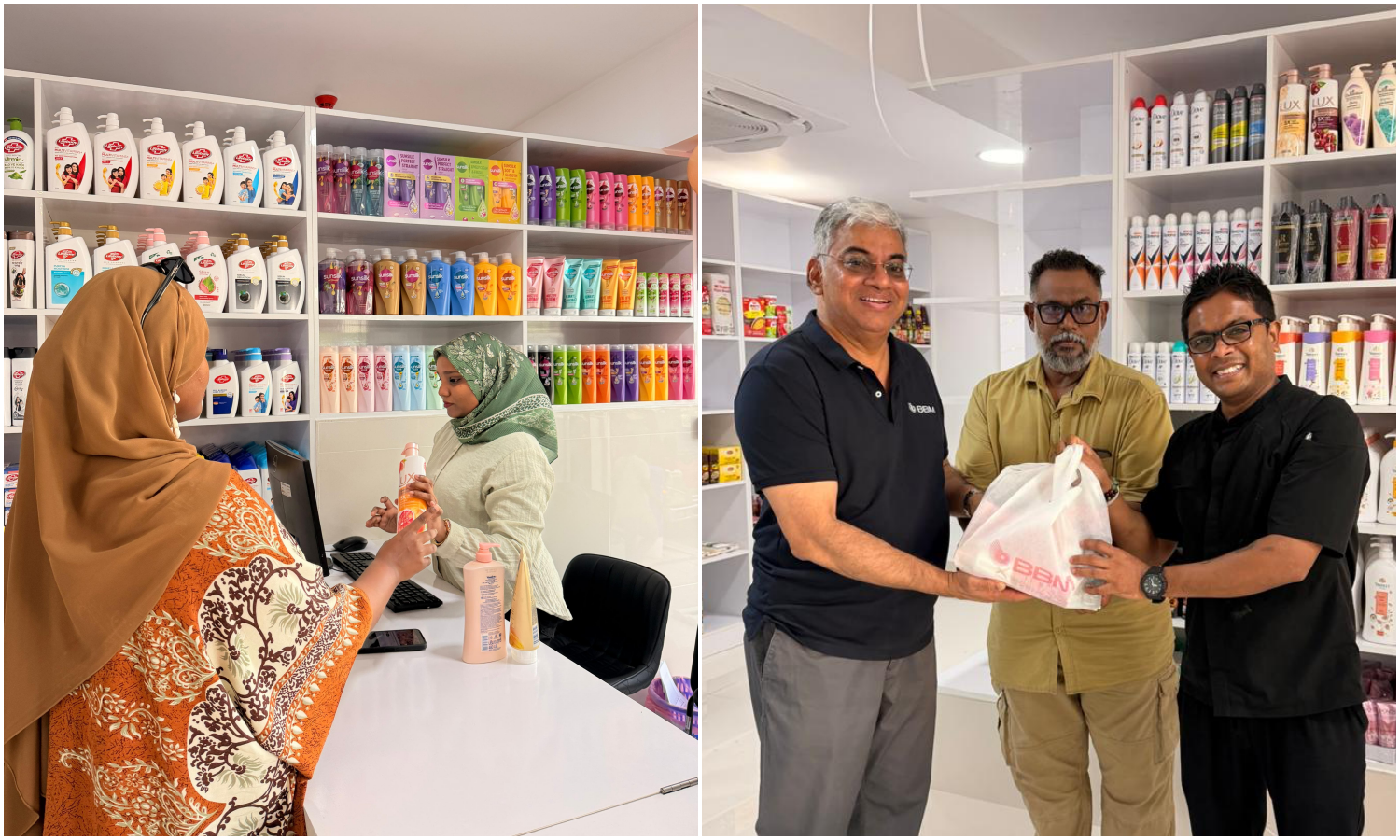
Bestbuy Maldives (BBM) opened a new wholesale store in Hulhumalé Phase 2 on Monday.
The outlet is located on the ground floor of Lot 20286, Nirolhu Magu, and is intended to improve access to BBM’s imported goods for residents of Hulhumalé Phase 2 and for businesses operating in the area.
According to the company, the opening forms part of its plan to expand services closer to customers in line with population growth in Hulhumalé.
With the opening of the new store, BBM’s full range of imported and distributed products will be available at the Hulhumalé Phase 2 location. These include consumer goods from international brands such as Lifebuoy, Vaseline and Unilever.
The store will also stock wholesale food products from brands including Daily, Cavin’s and Redman.
BBM has supplied goods to resorts, hotels and retail outlets across the Maldives for several years.
Action
Ataraxis Grand & Spa hosts integrated work-and-dive corporate retreat in Fuvahmulah
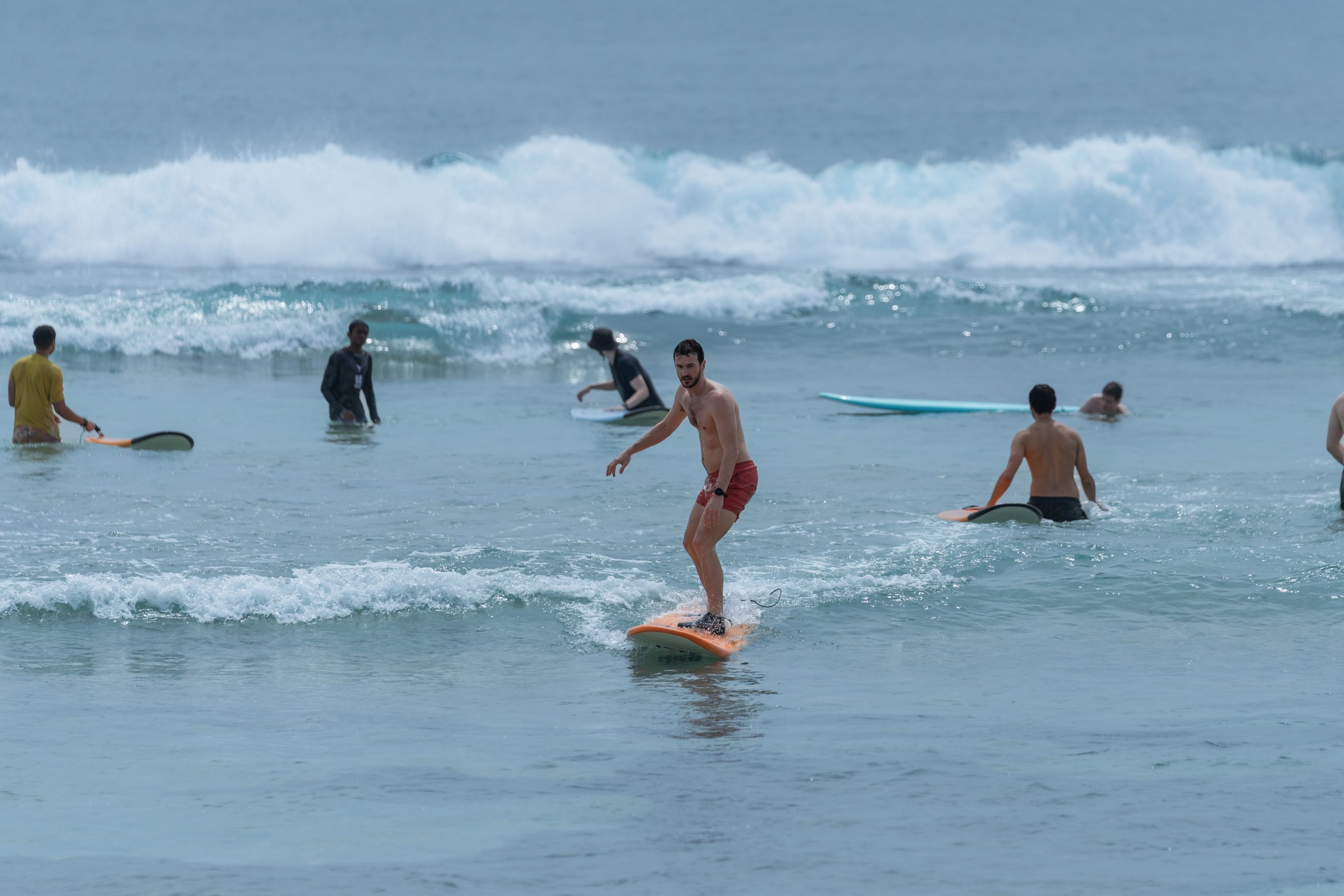
Ataraxis Grand & Spa recently hosted a week-long, closed corporate offsite in Fuvahmulah for a US-based artificial intelligence company, highlighting the island’s growing suitability for integrated work-and-experience retreats. The retreat brought a group of 36 international professionals to the property, which was reserved exclusively for the programme.
Designed as a private company offsite, the stay combined structured daily work sessions with guided diving and beginner-friendly surf experiences, creating a balanced format that blended focused collaboration with physical reset.
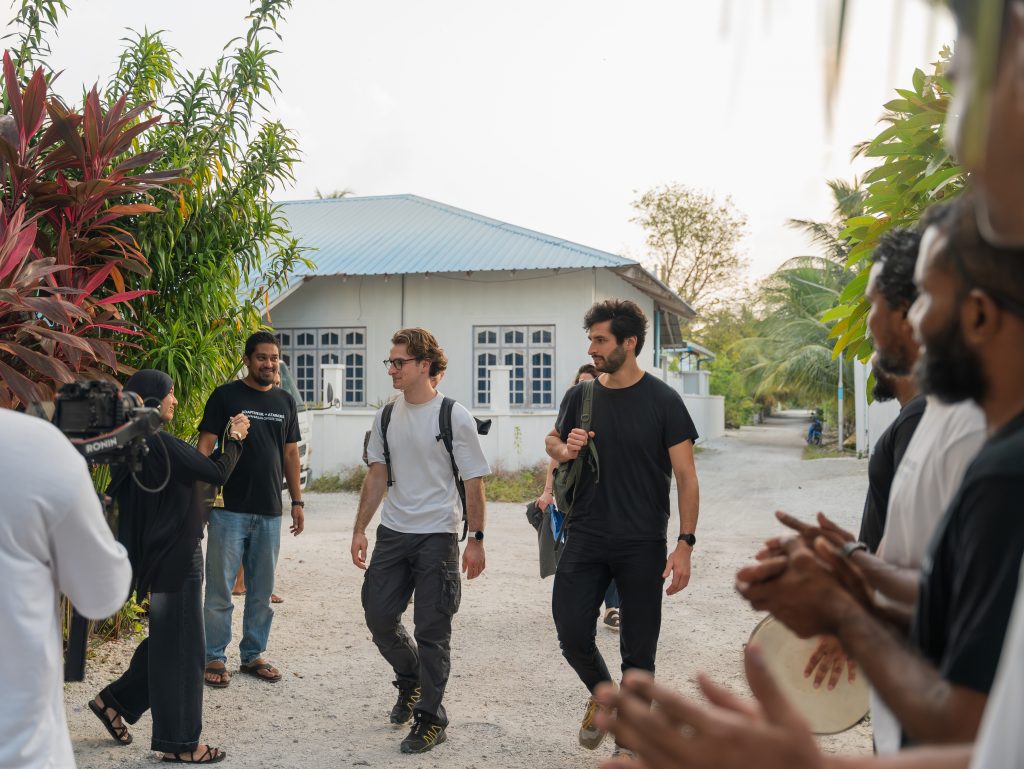
A notable component of the programme was dive training and certification. During the retreat, 17 participants completed their Open Water certification, while a further six undertook the Advanced Open Water course, with training and dives scheduled alongside work sessions as part of the integrated itinerary.
Throughout the week, participants worked on-site using dedicated shared spaces supported by reliable high-speed internet, allowing meetings, informal collaboration and scheduled activities to take place within a single, uninterrupted environment. This setup enabled teams to move seamlessly between work periods and organised ocean activities without leaving the property.
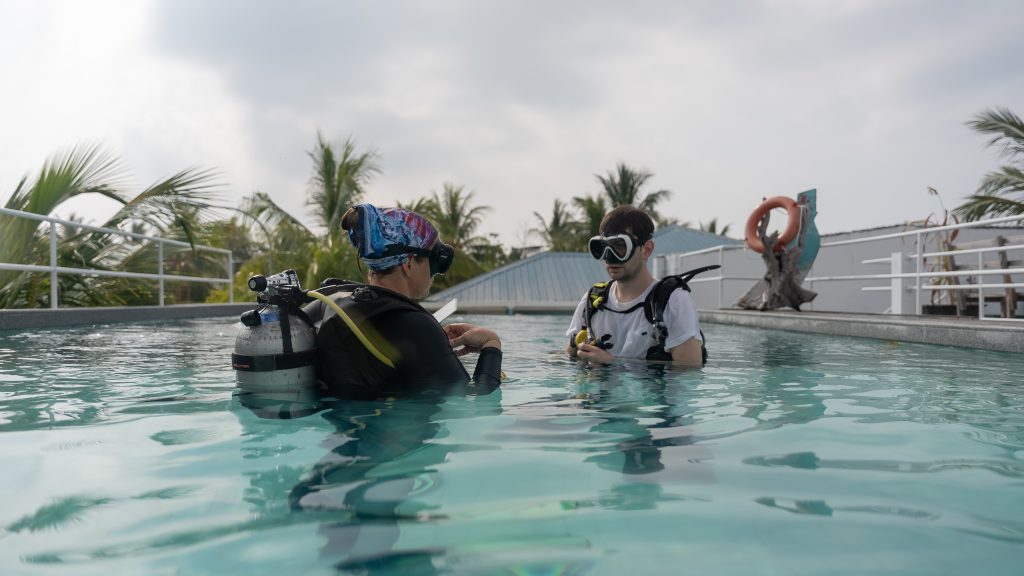
Fuvahmulah’s natural and operational advantages formed a key part of the retreat’s appeal. As one of the Maldives’ largest inhabited islands, it offers immediate access to pelagic dive sites, internationally recognised shark diving and surf breaks suitable for instruction, alongside the infrastructure required to support extended group stays.
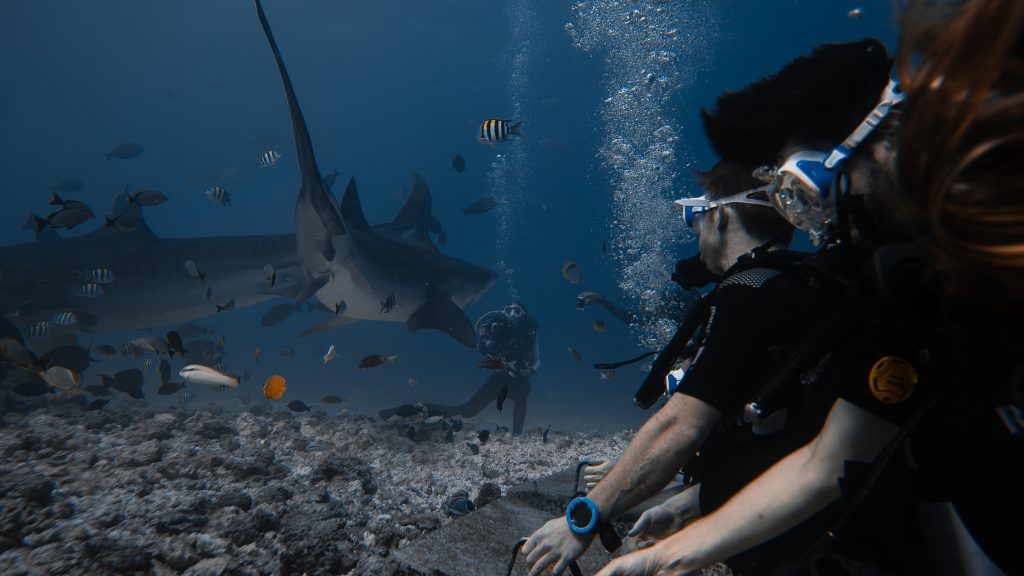
The offsite reflects a growing preference among technology and knowledge-sector teams for small-scale retreats that prioritise concentrated work environments and team cohesion over traditional conference formats. Such programmes typically involve longer stays and higher per-capita spend, aligning with sustainable, quality-driven tourism models.
The retreat also demonstrates how locally operated properties such as Ataraxis Grand & Spa are supporting this shift by delivering unified environments where accommodation, workspaces, connectivity and curated experiences operate as a single programme rather than separate services.
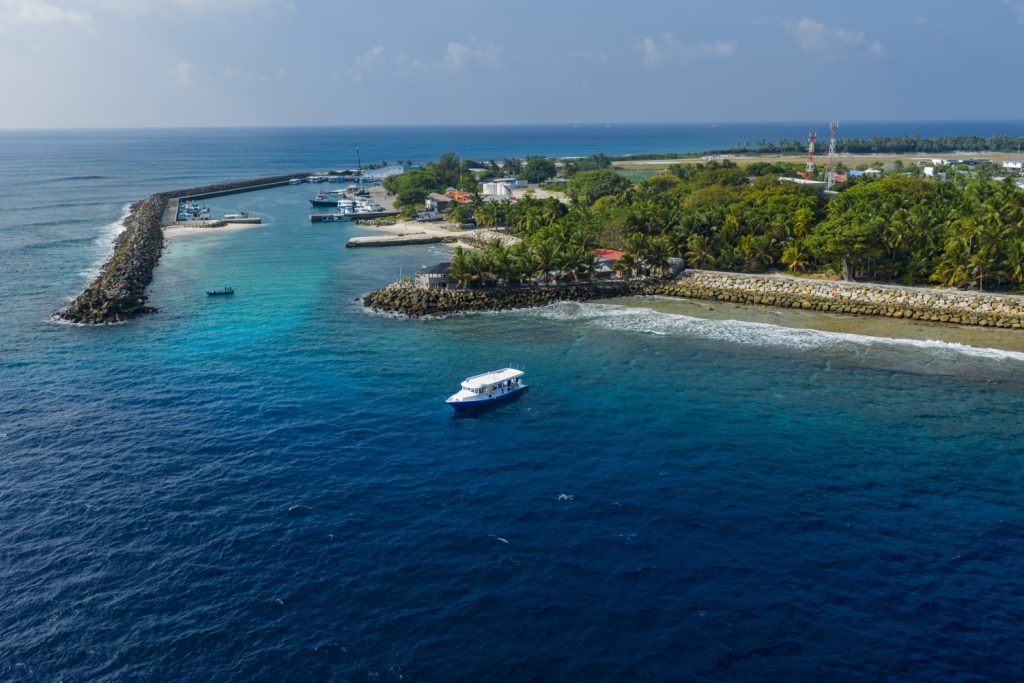
As organisations continue to explore alternative formats for strategy sessions, team resets and creative offsites, Ataraxis Grand & Spa’s experience positions Fuvahmulah as an increasingly viable destination for integrated corporate retreats.
Ataraxis Grand & Spa offers work-and-dive retreat programmes in Fuvahmulah that combine accommodation, dedicated workspaces, high-speed connectivity and organised diving and surfing.
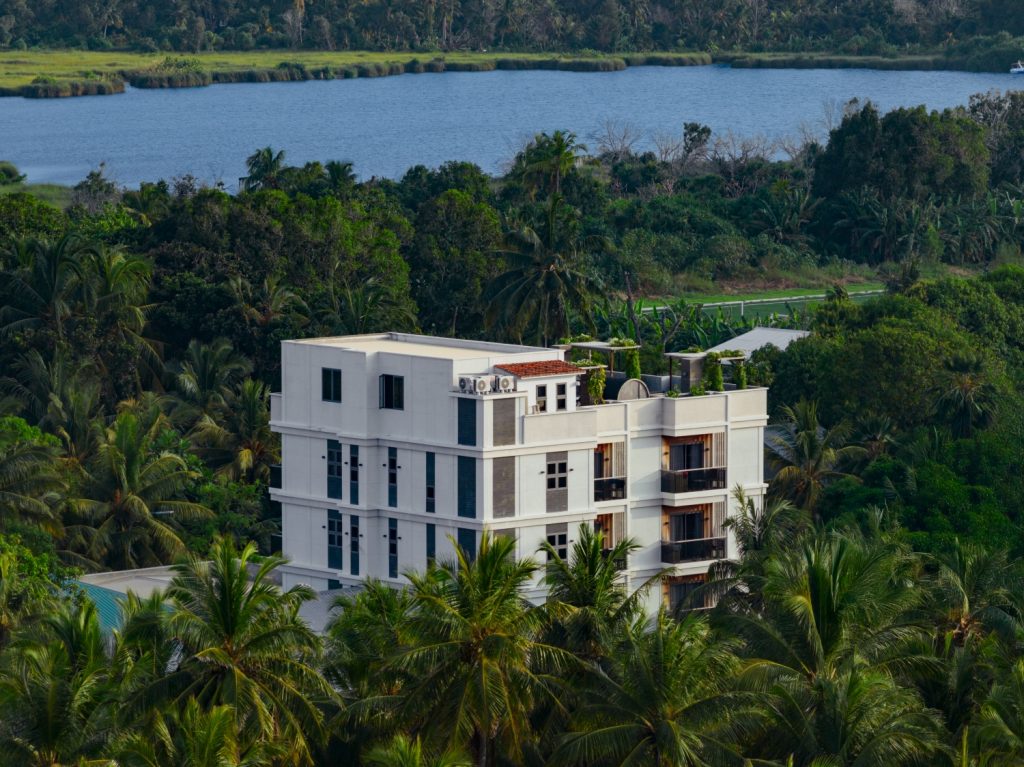
Further information on retreat formats and dive-inclusive stays is available via the Ataraxis Grand & Spa website.
-

 Featured1 week ago
Featured1 week agoCoco Bodu Hithi and Coco Palm Dhuni Kolhu curate distinct Valentine’s escapes
-
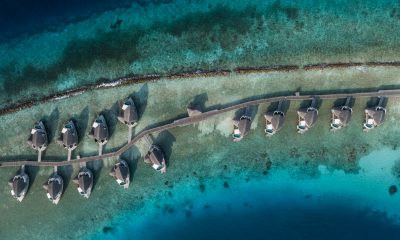
 News1 week ago
News1 week agoJW Marriott Maldives Resort & Spa invites families to celebrate Eid Al-Fitr in island luxury
-
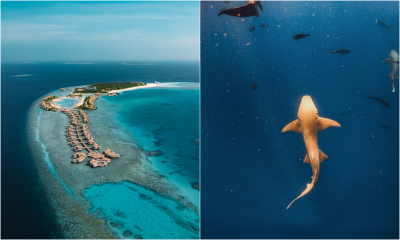
 Action1 week ago
Action1 week agoInterContinental Maldives Maamunagau Resort launches ‘Swim with Nurse Sharks’ experience
-

 Featured1 week ago
Featured1 week agoYear of the Horse celebrations across Sun Siyam’s Luxury, Privé and Lifestyle resorts
-

 Love1 week ago
Love1 week agoAzur rooftop at JEN Maldives sets stage for Valentine’s Day dining
-
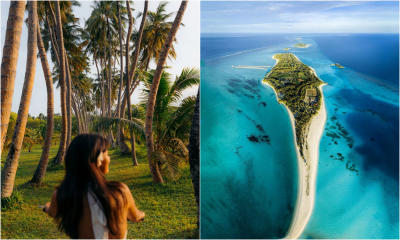
 Awards1 week ago
Awards1 week agoVilla Park secures second straight HolidayCheck Award
-
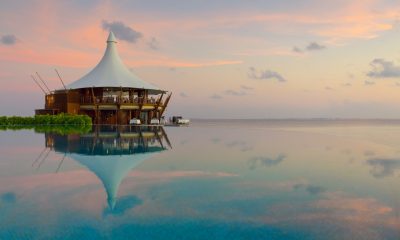
 Cooking1 week ago
Cooking1 week agoBaros Maldives’ The Lighthouse to present Duval-Leroy champagne pairing experience
-

 Featured1 week ago
Featured1 week agoCentara Hotels & Resorts marks Valentine’s Day with island-wide celebrations in Maldives









